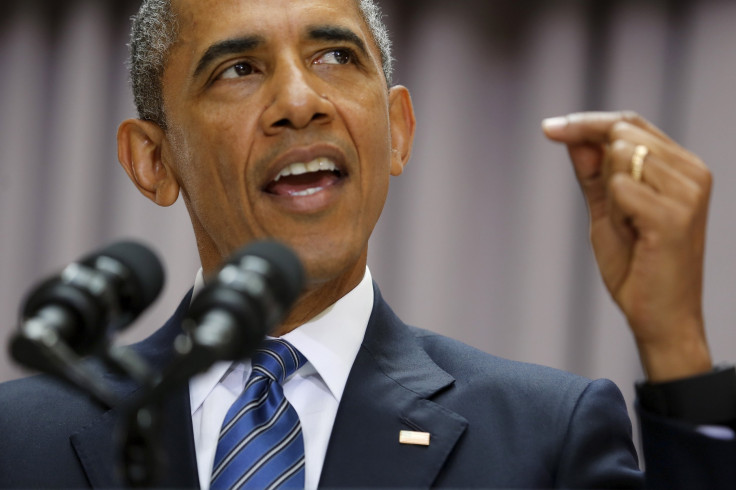Russia Denies Putin Met With Iran Hardliners Opposed To Nuclear Deal

The Russian government is denying claims made by Fox News that President Vladimir Putin met with an Iranian military chief in violation of United Nations restrictions. The allegations of a clandestine meeting in Moscow between the Russian chief of state and the Quds Force commander come in the weeks following the announcement of the pending international deal to curb the Iran’s nuclear capabilities.
The man said to have held court with Putin, Gen. Qassem Soleimani, is on a U.N. blacklist. When asked if Putin had met with Soleimani, a Kremlin representative gave a short and curt answer, “no,” according to a state-run news organization.
At the end of July, Putin told Israeli Prime Minister Benjamin Netanyahu that the Iranian nuclear agreement would improve security. Netanyahu has been a particularly vocal opponent of the pact. Russia was one of the six world powers at the negotiations with Iran to curb their nuclear ambitions.

The nuclear deal is facing a tough political reality in the United States. President Barack Obama has pushed for the deal to be accepted, while Republicans and some Democrats have pushed back hard. This week, Obama went so far as to compare Republican opposition to Iranian hardliners – including the Quds Force.
“The truth of the matter is, inside of Iran, the people most opposed to the deal are the Revolutionary Guard, the Quds Force, hardliners who are implacably opposed to any cooperation with the international community," Obama said in a CNN interview that will be aired Sunday, asserting that his previous claims that Republicans were acting like those extremist groups was "factually accurate."
The Quds Force is a special forces unit that is a part of the Revolutionary Guards, a branch of the military whose sole purpose, according to the Iranian constitution, is to defend the country’s Islamic system. The Quds Force, specifically, conducts missions outside of Iranian borders to further that mission.
The United States Congress has until September to make a decision on the Iran deal, though Republicans face a pretty steep climb to block it. Obama views the agreement as a major moment in his foreign policy legacy, and is expected to veto any GOP attempt to knock it down. Still, there are some schisms in his party as well, and on Thursday the likely future Senate Democratic leader, Sen. Chuck Schumer, D-N.Y., came out against the deal. Still, Congress needs a two-thirds majority to override a presidential veto – which is unexpected.
© Copyright IBTimes 2024. All rights reserved.





















